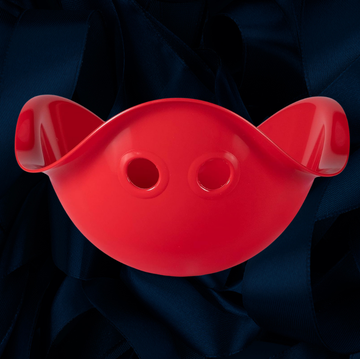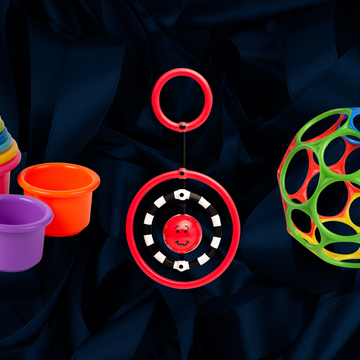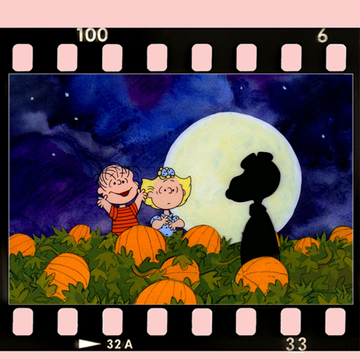10 Best Sippy Cups for Babies and Toddlers
It's time to gradually say bye to the bottle with one of these straw, spout or sip-top cups.
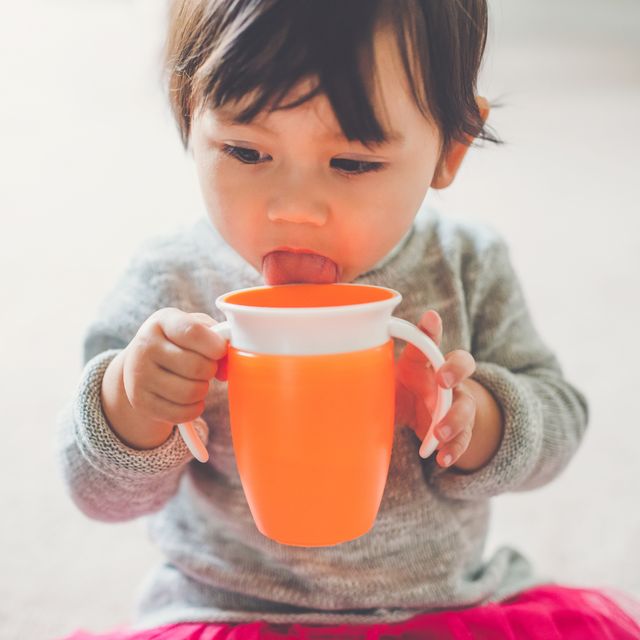
We've been independently researching and testing products for over 120 years. If you buy through our links, we may earn a commission. Learn more about our review process.
Sippy cups help your baby wean off of a baby bottle, and many parents start to think about buying one when their little one is about 6 months old and starting solids. The American Academy of Pediatrics lists reasons for getting your baby onto a sippy, the biggest of which is to ensure they gradually start to get more calories from fiber-rich foods than from breastmilk or formula.
Whether a cup has a spout, a straw or is the new spoutless variety, the goal is the same — to help your child serve themselves sips of milk, or water, independently.
In the Good Housekeeping Institute Parenting Lab, we've tested over 30 sippy cups in the last decade, with our own kids and with outside testers, to determine the best of the best. All told, we've logged thousands of hours filling, serving and cleaning sippy cups, not to mention picking them up from the floor after they've been flung across the room.
Pros
(Mostly) spillproof and leakproof
Doesn't look overly babyish
More than 37,000 five-star Amazon reviews
Variations, including stainless steel
Cons
A baby might need a minute to master this
Ages: 6 months+ | Size: 7 oz | Material: Plastic
A child can drink from any side of this cup, hence the name, and it seals as soon as they stop sipping, which helps prevent spills.
This is for anyone who needs a leak-resistant sippy. "It really, truly, honestly hasn't leaked for me, and it's been held upside down for minutes at a time and tossed across the room," one tester said. "My daycare also said that they love these cups for that same reason. My son is now 4 and still uses it. It's durable, doesn't look too babyish and it's easy to clean."
The brand does not promise it's totally leakproof; if you drop it from a height, some liquid might squirt out. But it's the least-messy cup we tested, and has more than 37,000 five-star Amazon reviews.
With no spout, not every baby understands it. Some parent testers say that young babies used to a bottle may not immediately realize how to get liquid out of this cup. "It takes time for them to get it, but once they do, it's very easy," said a mom of two whose kids under 5 both use the Miracle 360. "My oldest still takes it to bed at night because it won't spill."
Other variations:
• Black and white design featured in our most recent Parenting Awards
• Stainless steel 10-ounce version for toddlers 12 months+ and families looking to avoid plastic
• 14-ounce version without handles for 18 months+ (particularly 2-year-olds and preschoolers)
* Glow-in-the-dark 9-ounce version without handles for kids ages 3 and up, fun for bedtime water
Pros
Audible click tells you when the top is sealed
Weighted straw means less frustration
Popular cup at a great price
Cons
Straw takes some work to clean
Ages: 6 months+ | Size: 7 oz | Material: Plastic
This is a bargain, and with the Click Lock lid, "You hear an audible click once it passes a certain point so you know it is on tight and will stay in place," a tester says.
It's for kids who pay no attention to the "right" way to drink. With the weighted straw, your child can sip liquid from any angle. Even if they're trying to drink while holding the cup sideways, it will work through the magic of gravity — and they'll never have to tilt their head way back to get to the last drops.
A straw means more cleaning. Any cup with a straw is tougher to clean. Munchkin sells a set of Bottle and Cup Cleaning Brushes to help with the detail work.
Pros
Soft spout helps the transition from a bottle
Handles are easy for a baby to grip
Durable even with rough handling
Cons
Fairly small and babyish, probably not for older toddlers
Ages: 6 months+ | Size: 5 oz | Material: Plastic
The Learner Cup is a Parenting Award winner, as it's a nice tool when you're ready to transition your baby from their bottle to their first sippy cup.
Calling babies just starting solids: This has a soft spout that’s gentle on gums, a vent to reduce the amount of air swallowed and removable handles that are easy for little hands to grip.
Big kids won't want it. Satisfied testers had babies in high chairs who were able to wield this cup by themselves. Predictably, the babies tossed the cup at times, but it held up. It is fairly baby-looking, however, and only holds 5 ounces, so even a 2-year-old might not think it's big (or cool) enough.
Pros
Markings make it easy to know how much baby drinks
Can mix formula in this
Age-graded for very young babies
Cons
Some babies need time to master the straw
Ages: 4 months+ | Size: 6 oz | Material: Plastic
This cup has the youngest age-grading at our list — it's labeled appropriate for 4 months and up. OXO Tot has recently introduced soft, aesthetic pastels with pink and green colorways and also a blue and green set.
If you're still counting ounces of milk, this is for you. Moving from a bottle to a sippy can feel weird if there are no measurement lines on the side. This sippy has measurement marks so that if you're serving breastmilk or formula, you can still accurately gauge how much your baby drinks. It also makes it easy to mix formula right inside the cup.
There's a little trick to the straw. It takes some babies a little time to learn how to suck on this cup's straw because they must bite down a bit to get the tube to open up. But lots of babies like to bite down and figure it out quickly. The lid can be snapped shut to keep the straw covered when you're on the go.
Pros
Made from silicone
Great for 1-year-olds learning independent feeding
Pull off the straw lid and it is a first open-top cup
Cons
Not so leakproof so best to use at the high chair
Ages: 4 months+ | Size: 4 oz | Material: Silicone
Some parents are drawn to silicone, which is what this EZPZ cup is made from.
Are you into baby-led weaning? This cup is all about independence with its tiny, right-size design for little hands to hold without handles, so your baby learns to hold a cup like a big kid. It's age-graded for 9 months and up but in our testing 1-year-olds did best with it.
Eventually you can pull off the top and help your child learn to drink from an open cup, like a little adult. Because this only holds 4 ounces, you can trust that even if only half the liquid makes it into your kid and half ends up on the tray, it won't be too much to clean up. (They have to learn somehow!)
It's for learning, so leakproof is not the point. Even with the straw, this cup is the least leakproof on our list. We don't recommend taking this on outings and do recommend that you keep it in your kitchen to use while your baby is in their high chair.
Pros
A mini tumbler, so cute!
Size and design best suits toddlers
Comes in a rainbow of colors
Cons
Not leakproof, but is spill-resistant
Ages: 6 months+ | Size: 9 oz | Material: Silicone
Yes, it's a mini Stanley tumbler dupe, and yes, it's adorable. It's fun to drink out of a mini version of what mom or dad has!
It's best for toddlers. It's just got the one handle, and its a 9-ouncer, so we think it's best for ages 1, 2 and 3. It comes in more than a half-dozen colors.
Don't expect this to be totally leakproof. It is spill-resistant, though, and fits nicely in most car-seat cupholders. But if you toss this, the lid sometimes pops off. (Ask us how we know!)
Dr. Brown's Milestones Narrow Sippy Bottle with Silicone Handles 2-Pack
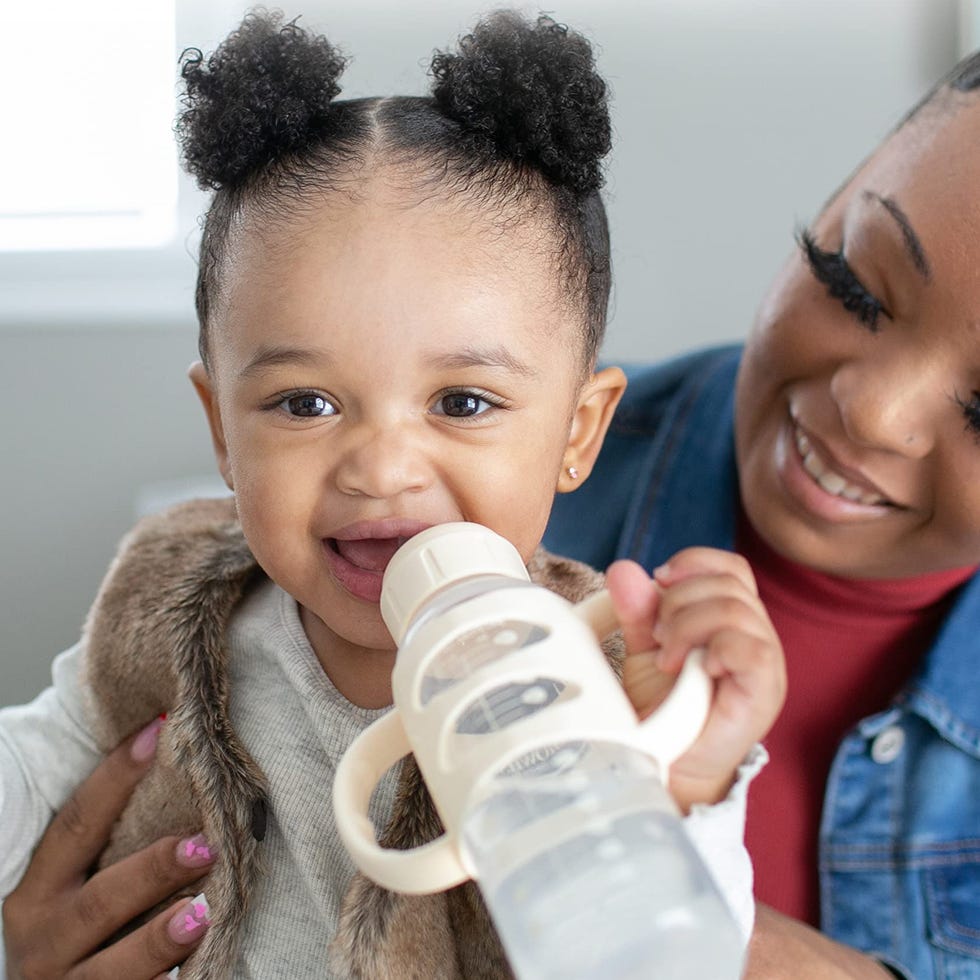
Pros
Spout is made specifically for Dr. Brown's bottles
If you prefer glass bottles, this prolongs their usefulness
Cons
Eventually you're going to need to move to a cup
Ages: 6 months+ | Size: made to fit 8 oz bottles | Material: Silicone handles and spout (bottle not included)
If your baby would have a fit over losing their beloved bottle, it might be best to turn their bottle into a sippy cup. (More bottle-brand sippies are in a box at the end of our list.)
Add these handles and the spout to your existing Dr. Brown's bottles. The handles are removable and you can actually use them on many narrow baby bottles, not just Dr. Brown's. The silicone spout, however, is made to fit on any Dr. Brown’s Options+ narrow bottle. Nutrition Lab Director Stefani Sassos used this with her daughter, and it let them continue to use their Dr. Brown's glass bottles.
You are delaying the inevitable. Your baby will learn to drink from the spout instead of a nipple, but eventually you're going to want to trade the bottles for a cup — this just buys you some time.
Pros
Keeps liquids cool
Nice carry handles
More than 23,000 five-star Amazon ratings
Cons
Can't be heat-sterilized
Ages: 12 months+ | Size: 9 oz | Material: Plastic
This is a sporty-looking cup for a toddler or preschooler, and it helps keep their liquid cool.
It's got double-walled insulation. Your toddler's water or milk should stay cool for a couple of hours, especially if you add ice. With the top-carry handles, this can be especially great for kids who are running around a playground or park.
No sterilizing this one. The brand does not recommend steam sterilizing as it can negatively affect the insulation; you'll want to just give these a good scrub.
Pros
20-pack for a party or travel
Easily cleaned and reused a few times
In some places, these can be recycled
Cons
Not leakproof, durable or able to be steam-sterlized
Ages: 9 months+ | Size: 10 oz | Material: Plastic
Mix and match the 20 cups and 20 lids. Write on these with a Sharpie to mark kids' names. They're great for parties, playdates and travel.
Consider these semi-disposable. I used to take them on camping trips because if one got filthy or lost, we didn't have to mourn it. And sometimes I just filled one with cereal — they're useful as snack holders, too.
Not durable or leakproof. We don't recommend putting them in your diaper bag with liquid inside! Fill them up when you're ready to serve.
These are best hand-washed. If you run them through a hot cycle in the dishwasher, they can warp. Eventually want to recycle them (if your town recycles plastic #5) or toss them (not eco-friendly, which is why we wouldn't use them as an everyday solution).
Pros
The look and size pleases a bigger kid
Tons of fun designs
Cons
Not for babies
Ages: 3 years+ | Size: 14 oz | Material: Plastic
Your preschool kid is ready to drink more than 10 ounces and wants to look cool, which might mean no handles.
It's your kid's first water bottle. The sippy spout is made for young kids who still bite down, but it's a large-size straw cup good for on-the-go hydration. And the top is fairly leakproof for when your preschooler swings their little backpack upside-down.
This comes in dozens of fun patterns, like animals or unicorns, or you can get just a plain color to decorate however you want. There's also a stainless-steel version.
This isn't for babies. So if you're onto this cup, your sippy days are soon in the rearview mirror.
More bottle-to-sippy options

If your baby is already attached to a bottle brand, there's a good chance the same brand has a sippy. A few popular ones:
- Philips Avent My Grippy Spout Sippy Cup will have a familiar shape if your baby drinks from Philips Avent bottles. You can mix and match parts, like putting the sippy top on the plastic bottle, to ease the transition.
- MAM Plastic Trainer Cup looks a lot like the MAM bottles and can be used as early as 4 months.
- Chicco Transition Sippy Cup has a soft and silky silicone spout that matches the feel of the Chicco bottle nipples.
How we test sippy cups

At the Good Housekeeping Institute Parenting Lab in New York City we closely review children's feeding products, many of which appear in our annual Parenting Awards.
Over the past decade, we've tested and evaluated over 30 sippy cups, both in the Lab and through surveys with consumer testers. Between our Lab pros and parents, we've logged thousands of hours with sippy cups, each of which need to be considered over the course of at least six months.
We rate cups based on how easy they are for kids to use and for parents to clean. We fill them up and check to see what it takes to make them leak. None are truly leakproof, but some are better than others.
What to look for when shopping for the best sippy cup

✔️ An age-appropriate cup: Companies consider their age grading carefully. If a bottle is marketed for 12 months and up, it's probably too difficult for a 6-month-old to hold. And if it's for 3 years and up, the straw might be a little hard on the mouth of a 2-year-old. Expect to switch out cups as your child grows.
✔️ Something your little one likes: This, unfortunately, requires some trial and error. A baby who has only been breastfed might be a little thrown by a spout or straw. Eventually, though, they get it.
✔️ A sippy you can easily clean: Especially if you use a sippy for milk, breastmilk or formula, you have to closely watch spouts, straws and valves where milk can get trapped. The fewer the pieces, the easier a sippy cup may be to scrub. See our section below on cleaning your sippy cups.
✔️ Kid appeal: Kids have strong opinions! The cups on our list are based on performance rather than character popularity, but many do come in great colors or fun designs, such as these animal versions of our top Munchkin choice. Once your child is heading to kindergarten, cede more of the control to them so they can feel good about breaking out their stainless-steel Spider-Man bottle or Bluey Thermos bottle.
How to clean a sippy cup

Sippy cup lids and crevices can begin to harbor mold if they are not carefully cleaned and thoroughly dried. Be especially vigilant if you fill a sippy with milk, which is harder to wash clean.
Your first line of defense is separating all the parts and running them through the dishwasher — usually it's recommended to keep them on the top rack. An inexpensive dishwasher basket helps keep pieces from falling to the bottom of your dishwasher.
Regularly scrubbing the areas that the dishwasher can't reach is highly recommended, too, says Carolyn Forté, executive director of the Home Care and Cleaning Lab at the Good Housekeeping Institute. "Totally disassemble the sippy-cup parts and scrub all the pieces by hand in hot, soapy water," she says. Small cleaning brushes can help.
Finally, if needed, you can use a steam sterilizer to blast the cup parts with heat and get them sanitized, but check the fine print — not all plastic sippy cups can take that kind of heat.
Whichever method of cleaning you choose, make sure all parts are completely dry before reassembling the cup — that's the final mold-busting step.
Why trust Good Houskeeping?

For more than 100 years, the pros at the Good Housekeeping Institute have been guiding consumers to quality products they can safely use with their families.
This guide to the best sippy cups was compiled by contributing writer Jessica Hartshorn, who previously covered the juvenile product market for American Baby magazine and Parents magazine. She's a mom of two now-big kids, so many staffers with younger kids pitched in to test. This list also includes feedback from our panel of consumer testers.
Jessica (she/her) is a freelance writer with several decades of experience writing lifestyle content and evaluating home and parenting products. A mom of two teens and two cats, her previous work can be seen in American Baby and Parents.

Readers Also Read
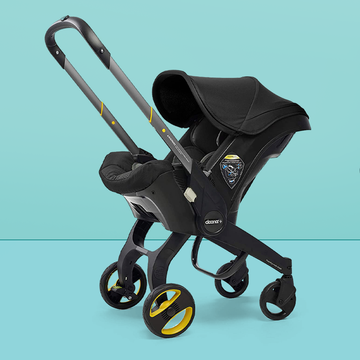
The Best Car Seat & Stroller Combos

The Best Diapers
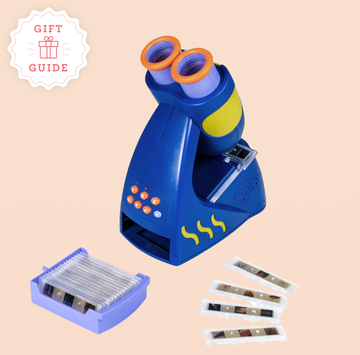
The Best Gifts for 4-Year-Old Boys

The Best Halloween Toys for All Ages












